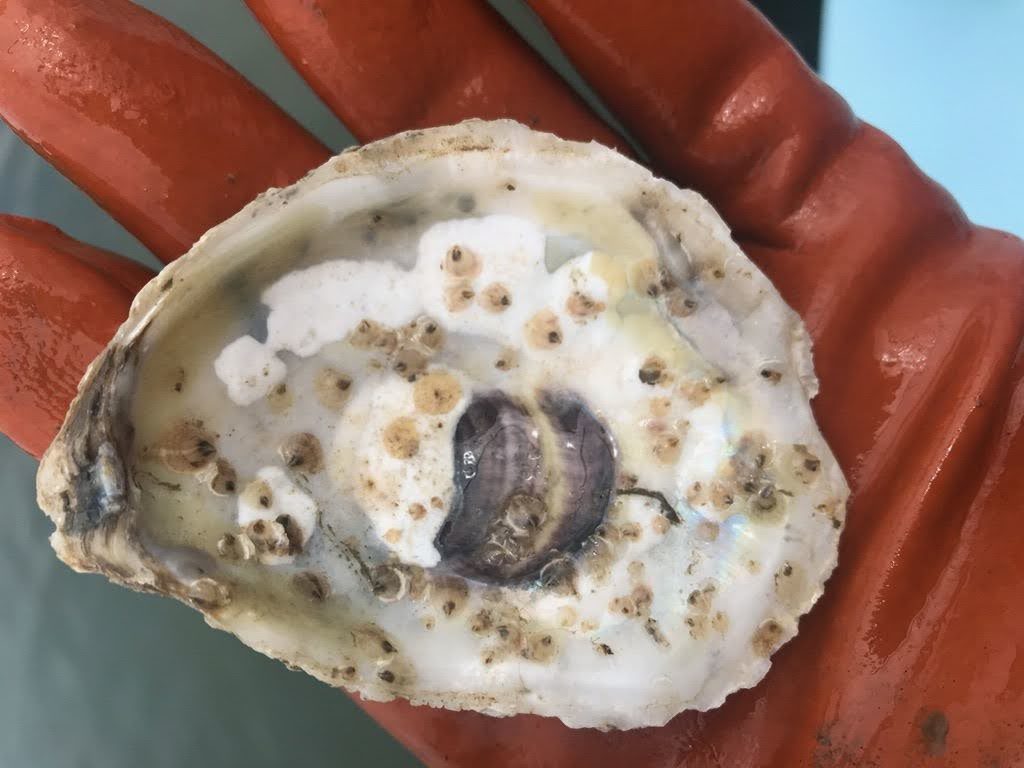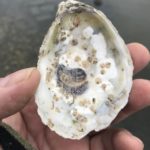By Mary Reid Barrow
While we are sitting here enjoying a July 4th holiday weekend, oysters are hard at work in the Lynnhaven River and beyond, making baby oysters to keep the waterways clean.
If you are out on a boat this weekend, picture this scene in the life and times of oysters taking place in the water below you. Oyster moms and dads on reefs everywhere spawn in early summer and warming water temperatures stimulate males and females to release their sperm and eggs into the water.
Soon there is a “chain reaction of spawning, which sweeps across the oyster beds, turning the water milky white with millions of eggs and with clouds of sperm,” said Alice Jane Lippson and Robert Lippson in “Life in the Chesapeake Bay.”
All the while, you are sipping a beer and eating a picnic lunch above!
Soon, many eggs are fertilized and turn into little larvae—baby oyster orphans looking for a home in which to settle down and grow up. Something in the water often attracts them to oyster beds and the little ones drop down and attach themselves to the older oysters or discarded shell.
These baby oysters are called spat. Spat is not a very endearing term for something so little that will grow up to be so delicious.
The photo above is of an oyster shell from the Lynnhaven with spat all over it. Most of those tiny little spots are baby oysters ready to take off and grow.
But when I think of spat, I think of the past tense of spit, or maybe of a fuss between cats.
Brent James, LRNow Oyster Restoration Coordinator, says the name dates as far back as the 14th century, but he does not know its origin.
Does anyone know how the babies of one of our most favorites foods ever got such a name?

Do you have a favorite tree or plant with a story to tell? What relationships have you observed between plants and critters? Who eats whom? Who has babies where? Send an email to maryreid@lrnow.org
